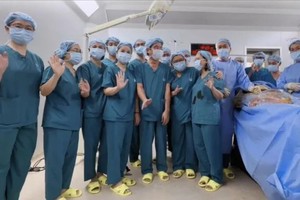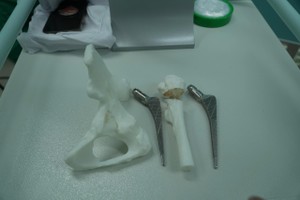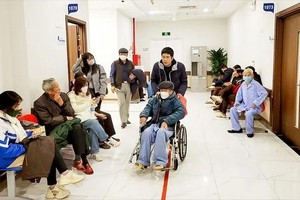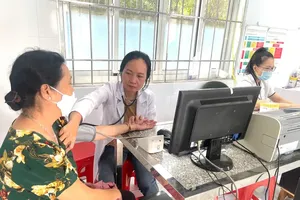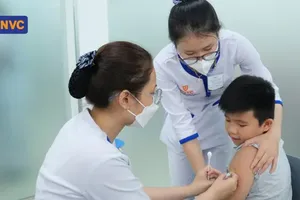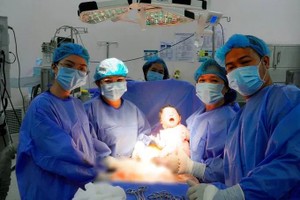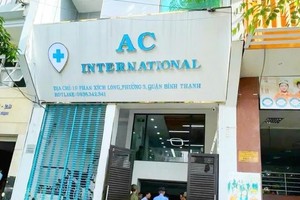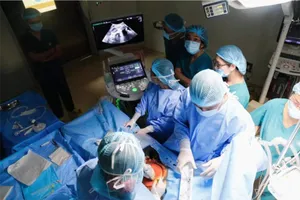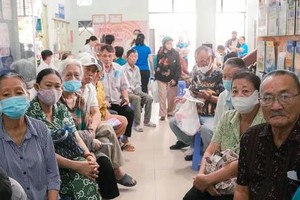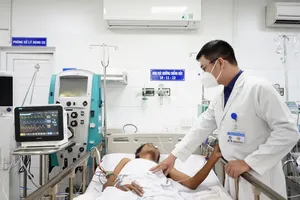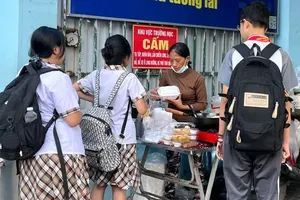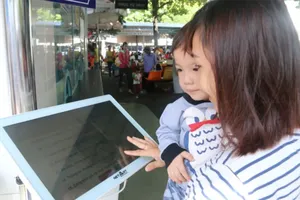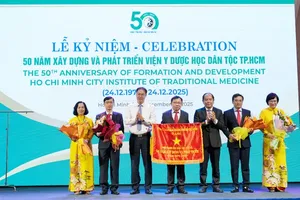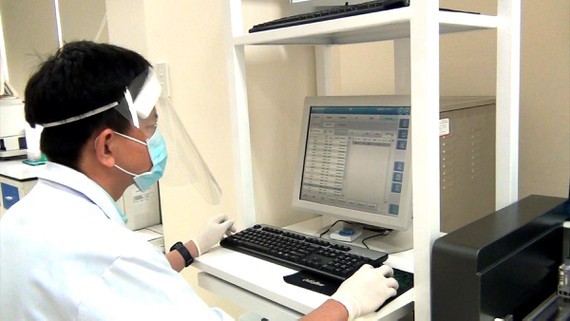 A medical technician of Cho Ray Hospital is conducting antigen test (PHoto: SGGP)
A medical technician of Cho Ray Hospital is conducting antigen test (PHoto: SGGP)
Dweller Tran Thi Kim Cuc in Ho Chi Minh City’s District 7 was wondering whether she has antigen for SARS-CoV-2 after being inoculated with Covid-19 vaccine shots; therefore, she went to a medical facility for antigen tests where informed the price of antigen test of VND450,000 while shipper Nguyen Van Ut Em in Binh Tan District required a negative test before returning to work after he has caught Covid-19. The test can help him to have a Covid Green card. With a Covid green card, he is eligible for delivery work again.
HCMC-based Cho Ray Hospital is carrying out antigen testing for the treatment of Covid-19 patients and meet residents’ demands. Dr. Tran Thanh Vinh, Head of Department of Biochemistry, Cho Ray Hospital, said that this method is applicable to a group of people who need testing to know if their bodies have antibodies and if so, how much will be achieved.
After vaccination, doctors will rely on that result to re-evaluate the body's ability in responding to the vaccine. In addition, this method is also applicable to a group of patients who a doctor requires to have tested as a doctor suspects them to catch Covid-19, the results will support the diagnosis.
Lots of medical facilities in the southern metropolis are offering antigen tests for dwellers’ demand. For instance, Hong Duc General Hospital has provided testing service with Cobas Roche c6000 in 60 minutes at the cost of VND450,000 excluding quick screening test.
The hospital collects VND1.2 million a person or VND600,000 a person for groups of 50-60 people for taking samples for testing at home. Elsewhere in the city, Hoan My Saigon General Clinic accepted to conduct antigen testing services for people who have had Covid-19 after 7-15 days and people who received Covid-19 vaccine after 14-28 days. Specifically, the fee for antigen tests at the clinic is VND475,000 a person and the fee of VND1,367,000 at people’s houses.
Doctor Truong Huu Khanh, advisor to the Department of Neurological Infections, Children's Hospital 1, said that people should not undergo antibody tests because it can cause waste but should wait for the health sector’s guidance.
Regarding the antibody test for return to work or re-evaluation of a person’s response to the vaccine, Dr. Nguyen Van Vinh Chau, Deputy Director of the Health Department of Ho Chi Minh City, said that antibody testing is extremely complicated. The commercially available tests are generic antibody tests; while the antibody that protects against infection is a neutralizing antibody that directly blocks the spike protein on the virus.
PCR and antigen tests are the most common but they work differently. While antigen tests look for proteins on the surface of the virus to ascertain the presence of the pathogen, PCR (polymerase chain reaction) tests are engineered to seek genetic material called RNA that instructs the virus to make these proteins.
Both tests also require a swab from the back of your nose or throat as a sample and cannot determine whether you are contagious if positive but that’s where the similarities end.

